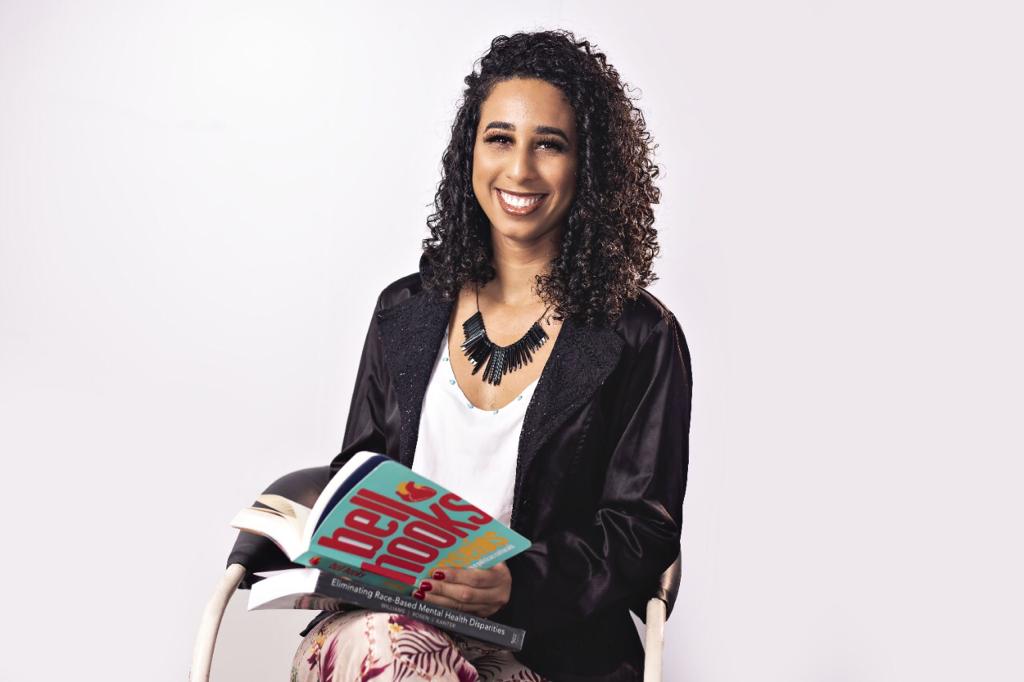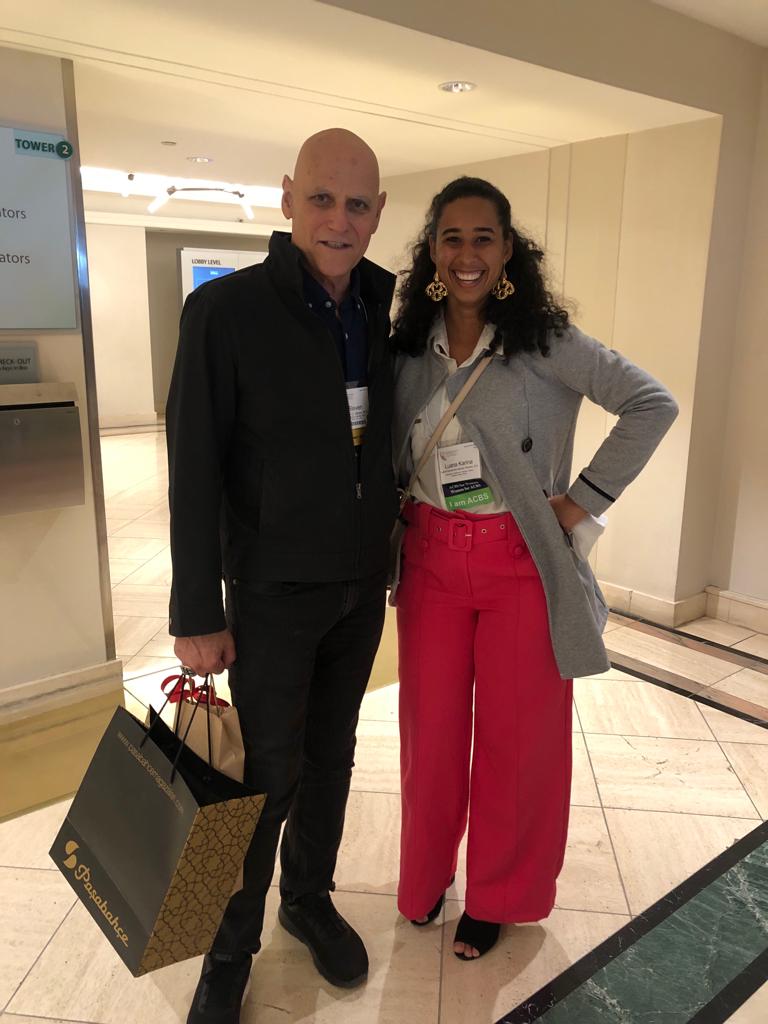Luana Karina Pereira, Bahia, Brazil
Could you please tell us a little about you and your background?
I'm a black woman from Bahia, a state in Brazil, and I finished my bachelor in Psychology in 2017. In 2018 I started to work as a clinical psychologist, and while I was doing that, I started to notice that some people (as black and LGBTQ+ ones) didn't fit really well in cases I used to read in books or listen to at conferences. Because of that, I started to research about minorities and specially black people's subjectivity. Since then I study, write and talk about antiracist clinical practices in Behavior Analysis.
How did you become interested in CBS?
Since I was in my first year at the university I'm interested in Behavior Analysis, because it made sense for me since the first time I heard about Skinner's work and the way radical behaviorism understands the human behavior. After my first contact with the field I volunteered myself to help in conferences as a monitor, and my interest only grew. When I had contact with the Acceptance and Commitment Therapy it also made sense to me, because it gives to people hope and choice to be the person they want to be guided by their own values, I think that's beautiful. So when I discovered ACBS I knew it would be the perfect place to learn and improve my practice as psychologist (and as a person as well), and it's been a real pleasure to be part of this community.
Could you tell us about your research and application interests?
I'm interested in subjects related to minorities' mental health, as women, black people, LGBTQIA+ people, and the interseccionality of race, sexual orientation and gender. My research at this moment is focused on how Acceptance and Commitment Therapy and Functional Analytic Psychotherapy can help black people to face racism and improve their mental health.
Could you tell us about your experience at the World Conference this year?
It was an awesome experience for me. Firstly, because I was completely grateful for the opportunity to represent my country and my people there. Secondly, because it was my first ACBS Conference at all, and I couldn't be there if the ACBS team didn’t have a scholarship like this. Thirdly, because I could learn so much from every researcher and speaker that was there too! I never imagined that one day I would meet Mavis Tsai and Steven Hayes in person. They are my big references as clinical psychologist since the beginning of my career! It was a pleasure to meet them, meet other speakers I admire and be closer to people that have the same concerns as I do about how to implement diversity, equity and inclusion in our field.
Besides, I met many different people, from many different places, and everyone was very kind, receptive to me. It was new and funny to get emotional in some workshops (as Mavis' ones) with people I never saw in my life! This happened because I felt confortable to be open and experience everything, so once again, thanks to all ACBS team. It was also a great opportunity to be closer to the Brazil chapter of ACBS, and other Brazilian researchers that do really interesting works here in Brazil that I didn't know. Beyond the profesional side, I'm sure I can say I made friends there, and this is really valuable to me.
Was there anything that stood out to you about the CBS community?
In general, it was a great surprise seeing themes related to Diversity, Equity and Inclusion in many researchs and speeches. I didn't see this kind of discussion at CBS a few years ago, and now I can see many researchers doing important efforts to fix that gap. I want to highlight the plenary of Matthew Skinta about how CBS community needs to be engaged to eliminate prejudice, because this is our responsability too. It was also great to see some diverse people as speakers there, as Táhcita Mizael, Janini Vaidya, Rhonda Magee, etc. It's really important to have diverse people as speakers, because people like me can relate to them, and this inspires us to keep doing what we do, even knowing how hard it is.
What did you take back from your experience that has been helpful to you?
I came back to Brazil with the inspiration and desire to get closer to CBS community, because now I know that has a large space to research about Diversity, Equity and Inclusion on our field. It was wonderful learning more about Process Based Therapy, because it's new and very promising in our field, and I think it can help a lot to improve minorities' mental health. I also could learn more about CBS applied to minorities, what helped me to be a better researcher and therapist. After the Conference I started to write papers in partnership with one of the researchers I got closer there, and I also got in groups of interests in Brazil Chapter. A few weeks ago I was invited to be speaker in a workshop from ACBS Brazil conference to talk about Racism and Psychotherapy, and there I could talk a little bit about my experience in the World Conference. It was really great to do that and I want to keep doing it!
Do you have anything else that you would like to share with the community?
I just want to say thank you again, and ask you guys to keep doing things like this. I'm sure our field only grows with the inclusion of diverse people, because there are many valuable contributions we can make, but this is possible only if we have the opportunity to be there, to improve our knowledge and to show our perspectives about the world.
If you would like to donate to the Diversity, Equity, and Inclusion Committee Fund, please click below:
Please note that this contribution does not qualify as a tax-deductible charitable contribution, according to USA tax law ... but it's a nice thing to do.

